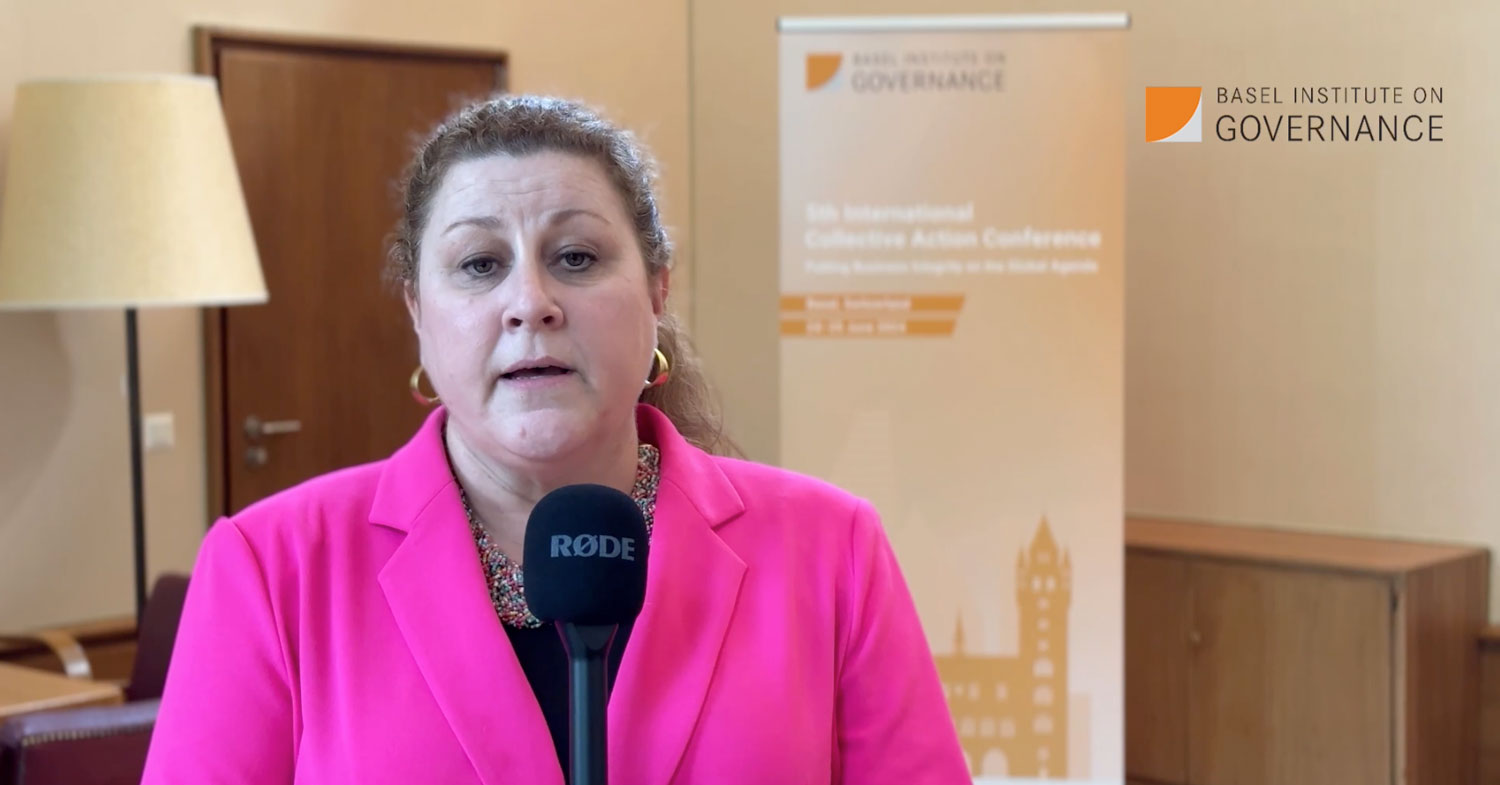Why should development banks engage in anti-corruption and Collective Action initiatives?

By Lisa Miller, Head of Integrity Compliance, World Bank Group.
Speaking at the Basel Institute’s International Collective Action Conference on 25–26 June 2024, Lisa Miller explained why preventing fraud and corruption is essential for development banks like the World Bank Group to achieve their missions – and how engaging in Collective Action with other stakeholders can help.
Preventing fraud and corruption
Multilateral development banks care about anti-corruption because it is important to ensure that the funds that are loaned by multilateral development banks for development projects are used for their intended purpose and are not siphoned off due to fraud and corrupt acts.
But more than that, the World Bank Group's mission is to end extreme poverty and boost prosperity on a liveable planet.
Corruption diverts development funds. It leads to inequities. On the other hand, business integrity and good governance help promote accountability, efficiency, transparency and equity. Ensuring that projects are free of fraud and corruption, and promoting good governance, can help to promote sustainable projects and a sustainable planet.
So the World Bank Group's efforts to reduce fraud and corruption and promote anti-corruption initiatives all help contribute to the World Bank Group's mission.
The importance of Collective Action
Promoting Collective Action is an important part of the World Bank Group's anti-corruption efforts.
Multilateral development banks have many stakeholders. As well as member governments, for example, there are project implementers, which include a wide range of companies such as state-owned enterprises, multinationals, small and medium-sized enterprises and consulting companies. These companies are global and operate in all sectors.
The World Bank Group has a tremendous interest in promoting Collective Action among its various stakeholders to help reduce the risk of fraud and corruption – not only in World Bank Group-financed projects, but more generally.
And we partner with the private sector, public sector, civil society organisations, non-profit organisations and academia to promote Collective Action to reduce the risk of fraud and corruption.
Learn more
- See more Q&As with leading voices in promoting anti-corruption Collective Action, together with photos and videos, on the web page of our 2024 International Collective Action Conference.
- Learn more about Collective Action and how to engage on the B20 Collective Action Hub.


